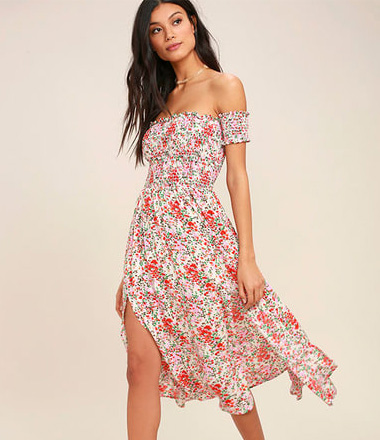Fast fashion
- Let's talk about "Fast fashion":


"Fast fashion" is a business model and fashion trend that emphasises the rapid production of large quantities of fashionable goods at low cost to meet rapidly changing fashion trends.Key features of this model include:
Rapid response to market trends:
Fast fashion brands are able to design, manufacture and launch new fashion products in a short period of time to meet the changing demands in the market.
Low cost:
Fast fashion brands usually reduce costs through efficient production and supply chain management, making their products relatively inexpensive.
Mass Production:
Fast fashion brands are often based on mass production to ensure that they are able to meet a wide range of market demands.
Fashion Imitation:
Fast fashion brands often imitate the designs of high-end fashion brands and quickly transform these designs into affordable products.
Fast Supply Chain:
Fast fashion brands often have an efficient supply chain that allows them to deliver newly designed fashion products to shops in the shortest possible time.
And what about fast fashion in the apparel industry?
Fast fashion in the apparel industry refers to brands that are able to produce quickly, launch new styles quickly and sell them at relatively low prices.
Here are some features and trends about fast fashion in the apparel industry:
Rapid design and production:
Fast fashion brands are known for their efficient design and production processes. They are able to launch new designs in a short period of time, from concept to market in a matter of weeks.
Low prices:
Fast fashion brands often reduce costs through mass production and supply chain optimisation, thus offering relatively low prices and making fashion a more affordable option for more people.
Trend following:
Fast fashion brands often follow fashion trends closely and are quick to copy and launch new designs to meet consumer demand for novelty and style.
High Turnover Inventory:
In order to keep up with rapidly changing fashion trends, fast fashion brands often adopt a high turnover inventory strategy to minimise the risk of backlogs and slow-moving products.
Globalisation:
Many fast fashion brands are global in nature, with international supply chains and distribution networks that enable them to quickly roll out new styles across the globe.
Social Media Influence:
Fast fashion brands often actively utilise social media platforms to increase brand awareness and influence through the promotion of fashion bloggers and trendsetters.
What impact will rapid design and production in the apparel industry have on the apparel industry?
Positive impact:
Meeting Consumer Demand:
Rapid design and production allows apparel brands to be more flexible in meeting rapidly changing consumer demand for new styles and trends.
Stimulate Market Dynamism:
Fast fashion's rapid production model drives competition and innovation throughout the apparel market, stimulating more design creativity and style.
Lower prices:
Through efficient supply chains and mass production, fast fashion brands are able to offer relatively low prices, bringing fashion closer to the masses.
Job creation:
Rapid production requires a large amount of labour, so in some regions, the fast fashion industry may create local jobs.
Globalisation:
The global supply chains and distribution networks of fast fashion brands help to facilitate international trade and global economic integration.
Negative impacts:
Environmental issues:
Rapid production may lead to overconsumption of resources, generation of large amounts of waste and adverse environmental impacts, such as overuse of water, chemicals and energy.
Labour conditions:
In order to meet market demand quickly, some brands may have poor labour conditions in production, including low wages, excessive working hours and safety hazards.
Low quality and rapid obsolescence:
With a focus on rapid production, some fast fashion brands may sacrifice product quality, resulting in garments that are more likely to wear out and lose their shape, thus accelerating their obsolescence.
Overconsumption:
Fast fashion's rapid renewal model may encourage consumers to develop overconsumption habits, leading to wasteful use of resources and environmental pressures.
Competitive pressures in the industry:
Competitive pressures for fast design and production may lead some brands to sacrifice innovation and quality in favour of rapid mass production.
In recent years, as concerns about sustainability and social responsibility have grown, some brands have begun to take steps to promote sustainable fashion and mitigate the potentially negative impacts of fast fashion. This includes using environmentally friendly materials, improving labour conditions and promoting slow fashion.
Metrodress is a professional clothing manufacturer, we provide one-stop customized service, from design to production to solve your problems, you can contact us if you want to know about clothing production!
Custom stretch velvet A-line mini dress,Custom dress,Custom Service,MOQ 50 Pieces.
Custom winter new dresses,Custom dresses,Custom Service,MOQ 50 Pieces.
Custom fall lace-up dresses,Custom dresses,Custom Service,MOQ 50 Pieces.
Custom plush stretch velvet long sleeve mini dress,Custom dress,Custom Service,MOQ 50 Pieces.
Custom women's printing dresses, Custom dresses,Custom Service,MOQ 50 Pieces.








